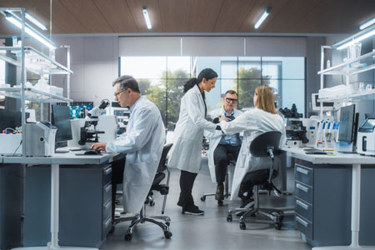Automation Of 3D Intestinal Organoids Culture With CellXpress.ai Automated Cell Culture System

This content is brought to you by Molecular Devices, a Danaher Operating Company.
The high rate of attrition in the therapeutic pipeline is frequently due to the inability to effectively translate pre-clinical findings into clinical success. This gap in translational efficacy poses a significant challenge in drug development. Organoids, which are three-dimensional cell cultures that mimic the architecture and function of real tissues, have emerged as a promising solution in disease modeling and drug screening. Their ability to more accurately replicate human tissue structure and functionality leads to more predictive responses to therapeutic agents, potentially revolutionizing the drug discovery process.
Despite their potential, the widespread adoption of organoids as a primary screening method in drug discovery faces several hurdles. The complexity of assays involving organoids can be daunting and requires sophisticated techniques and equipment. Additionally, reproducibility remains a critical issue, as variations in organoid formation and behavior can affect the consistency of results.
Discover how advances in technology and methodology are needed to simplify assay procedures, enhance reproducibility, and develop scalable production techniques.
Get unlimited access to:
Enter your credentials below to log in. Not yet a member of Pharmaceutical Online? Subscribe today.
